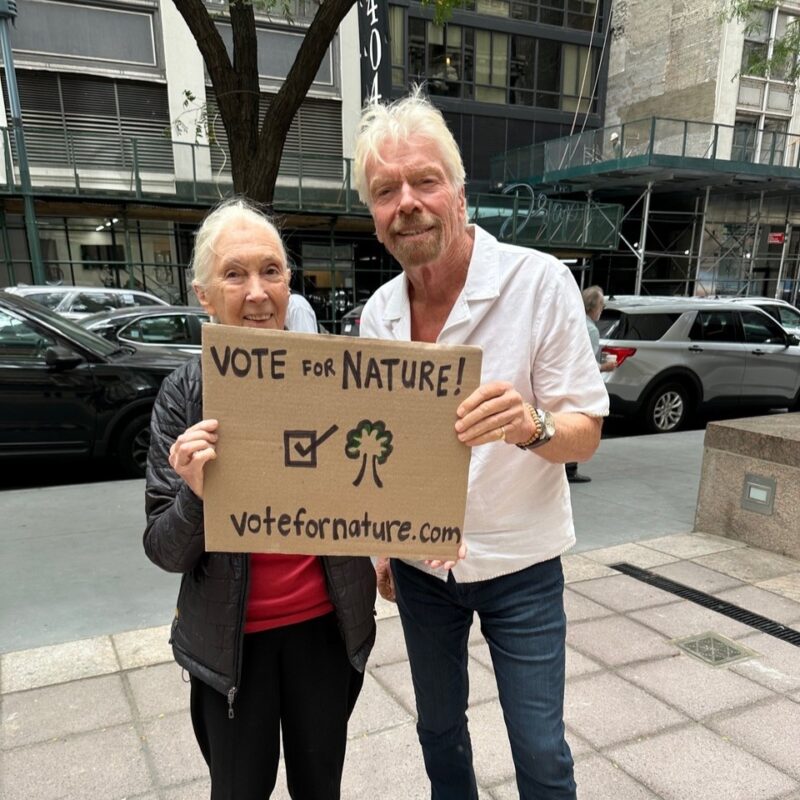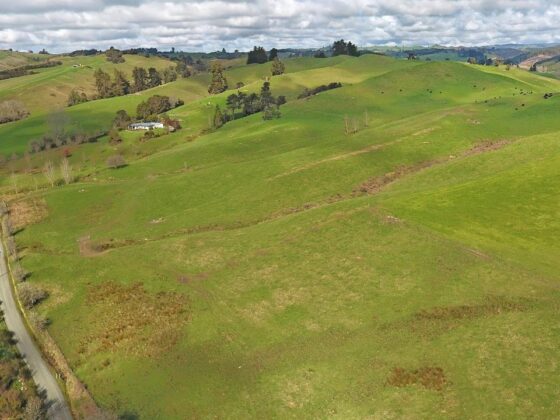As I scrolled through my social media feed the other day, I came across a post from Richard Branson. The billionaire entrepreneur was beaming alongside the legendary Jane Goodall, proudly sharing their recent meeting. “I recently had the honour of spending time with one of the most inspiring people in the world – Jane Goodall,” he wrote.
At first glance, it seemed like a heartwarming moment between two influential figures. But as I delved deeper, I couldn’t help but feel a sense of unease. A comment below the post caught my eye: “Wonderful woman – what a perfect example of the eco-system vs the EGO-system 🙁”
Those words struck a chord. They perfectly encapsulated the dissonance I was feeling. On one side, we have Jane Goodall, a woman who has dedicated her entire life to understanding and protecting our planet’s delicate ecosystems. On the other, we have Richard Branson, a man whose business empire has often prioritized profit over environmental concerns.
This juxtaposition got me thinking about the core principles of Wealthness and how they relate to true impact and success. Let’s dive deeper into this contrast and explore what it means for those of us seeking a balanced, mindful approach to wealth and well-being.
Jane Goodall: A Lifetime of Selfless Dedication
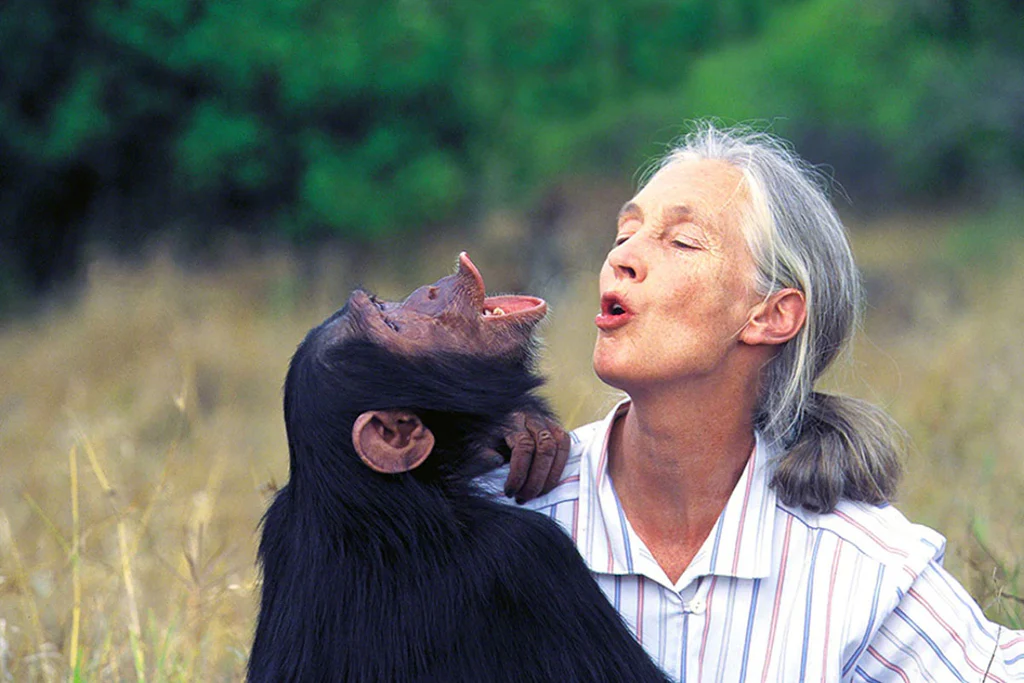
Jane Goodall’s story is one of unwavering commitment to a cause greater than herself. At the age of 26, with no formal training or degree, she ventured into the Gombe Stream National Park in Tanzania to study chimpanzees. What followed was a groundbreaking 60-year career that revolutionized our understanding of these primates and, by extension, ourselves.
Goodall’s work wasn’t just about scientific discovery. It was about fostering a deep connection between humans and the natural world. She showed us that chimpanzees use tools, have complex social structures, and experience emotions much like we do. In doing so, she blurred the lines between “us” and “them,” compelling us to see ourselves as part of nature, not separate from it.
But Goodall didn’t stop at research. Recognizing the threats facing chimpanzees and their habitats, she transformed from a scientist into a passionate activist. She founded the Jane Goodall Institute, which works tirelessly to protect chimpanzees and their habitats through community-centered conservation efforts.
What strikes me most about Goodall is her humility and genuine concern for the planet. Despite her fame and influence, she has never lost sight of her mission. Her work isn’t about personal gain or recognition – it’s about making a real, lasting difference for the creatures and ecosystems she loves.
Richard Branson: The Face of Ego-Driven Entrepreneurship

Now, let’s turn our attention to Richard Branson. There’s no denying that Branson is a successful entrepreneur. From Virgin Records to Virgin Atlantic, he’s built a global empire spanning multiple industries. His charismatic personality and daring stunts have made him a household name.
But when we look closer at Branson’s businesses and their impact, a different picture emerges. Virgin Atlantic, for instance, is part of an industry that’s responsible for about 2% of global carbon emissions. While the airline has made some efforts to reduce its environmental impact, the fact remains that air travel is inherently harmful to the environment.
Then there’s Virgin Galactic, Branson’s space tourism venture. While the idea of commercial space travel is exciting, it’s hard to justify the enormous carbon footprint of these flights when our planet is facing a climate crisis.
Branson has attempted to balance these environmentally damaging ventures with eco-friendly initiatives and partnerships. Like many other dirty polluters he’s pledged to invest profits from his transportation companies into clean energy solutions as though that somehow absolves him of the damage he does. He’s also been vocal about climate change and has partnered with various environmental organizations.
But here’s where the concept of the “ego-system” comes into play. Many of Branson’s environmental efforts feel more like PR opportunities than genuine attempts at change. His meeting with Jane Goodall, while potentially well-intentioned, comes across as another photo op – a chance to associate his brand with a respected environmentalist.
The Corporate Conundrum: PR Stunts vs. Real Responsibility
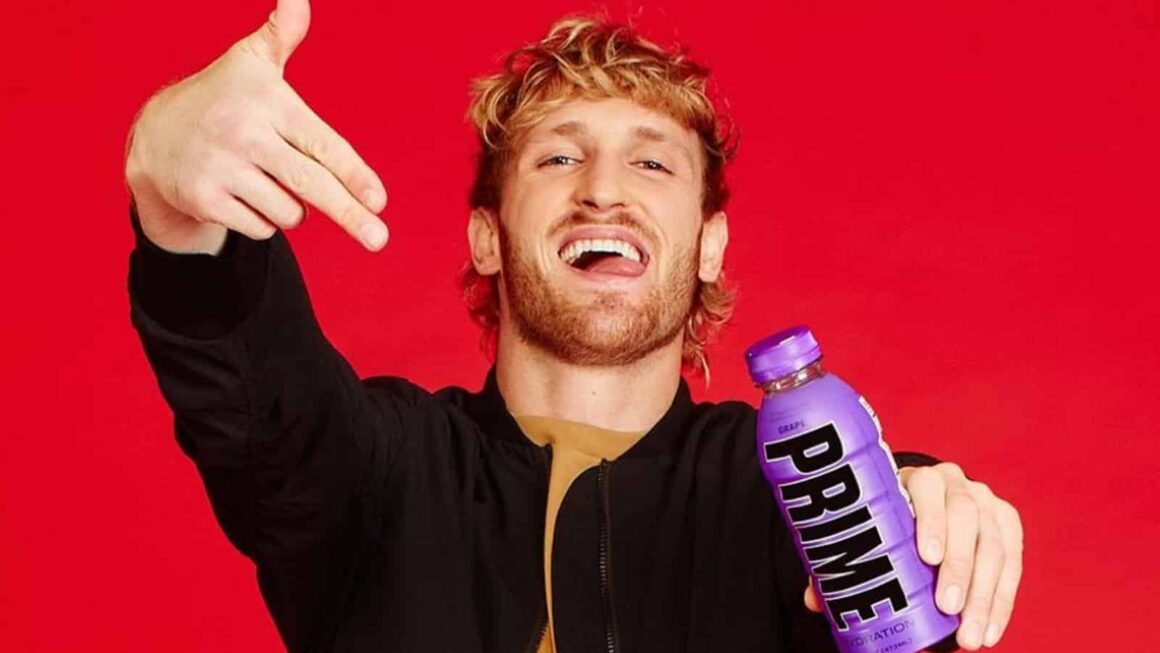
Coca-Cola has been named the world’s top plastic polluter for three consecutive years. Their bottles litter our oceans, clog our waterways, and harm wildlife. Yet, what do we see? Flashy PR campaigns about recycling and beach clean-ups. Don’t get me wrong, these initiatives aren’t bad in themselves. But they’re a drop in the ocean compared to the tsunami of plastic Coke produces every single day.
It’s a classic case of misdirection. These corporate giants point the finger at us, the consumers, saying, “It’s your responsibility to clean up this mess.” Meanwhile, they’re raking in billions in profits from the very products causing the problem. It’s like they’re handing out band-aids while wielding a sledgehammer.
And it’s not just Coke. Pepsi, major supermarket chains, and countless other corporations play the same game. They create mega-tons of plastic waste and then launch feel-good campaigns about individual responsibility. It’s a narrative that conveniently absolves them of the need to fundamentally change their practices.
Recently, I was exposed to a video of Logan Paul promoting his Prime energy drink. There he was, flashing his ego all over YouTube, making billions from a sugary drink packaged in yet more plastic bottles. It was a stark reminder of how deeply entrenched this problem is in our culture of consumption and instant gratification.
From a Wealthness perspective, this approach is fundamentally flawed. True wealth – the kind that enriches not just our bank accounts but our lives and our planet – can’t be built on a foundation of environmental destruction and corporate doublespeak. It requires alignment between our actions and our values, between what we say and what we do.
These corporations have the resources, the influence, and the innovative capacity to make real, systemic changes. They could revolutionize packaging, invest in truly sustainable practices, and lead the charge in creating a circular economy. Instead, they often choose the path of least resistance – and maximum profit.
As individuals pursuing Wealthness, we need to be aware of these corporate tactics. We need to see through the PR stunts and demand real accountability. But more than that, we need to embody the change we want to see in our own lives and businesses.
This doesn’t mean we all need to become zero-waste gurus overnight. Wealthness is about progress, not perfection. It’s about making conscious choices, aligning our actions with our values, and continuously striving to do better.
So, the next time you see a corporate giant launching a splashy environmental campaign, ask yourself: Is this real change, or just a glossy distraction? Are they taking responsibility for their impact, or just shifting the burden onto consumers?
Remember, true Wealthness isn’t about appearing good – it’s about doing good, consistently and authentically. It’s about creating success that doesn’t come at the cost of our planet’s health. As we navigate our own paths to wealth and impact, let’s commit to being part of the solution, not just another cog in a broken system.
The Disconnect: When Ego Overshadows Impact
The stark contrast between Goodall and Branson highlights a crucial issue in our modern approach to success and impact. Goodall represents the “eco-system” approach – one that prioritizes the health of our planet and all its inhabitants over personal gain. Branson, on the other hand, embodies the “ego-system” – a mindset that puts personal success and recognition first, even if it comes at an environmental cost.
This is not to say that all entrepreneurs are driven purely by ego, or that business success is inherently at odds with environmental stewardship. But Branson’s approach – building polluting industries and then seeking redemption through high-profile environmental partnerships – feels disingenuous.
It’s a pattern we see all too often in the corporate world. Companies cause significant environmental damage through their core business practices, then attempt to offset this with token green initiatives or partnerships with environmental organizations. While these efforts aren’t entirely without merit, they often serve more as a PR strategy than a genuine commitment to change.
The Wealthness Perspective: Beyond Ego and Cheap Photo Ops
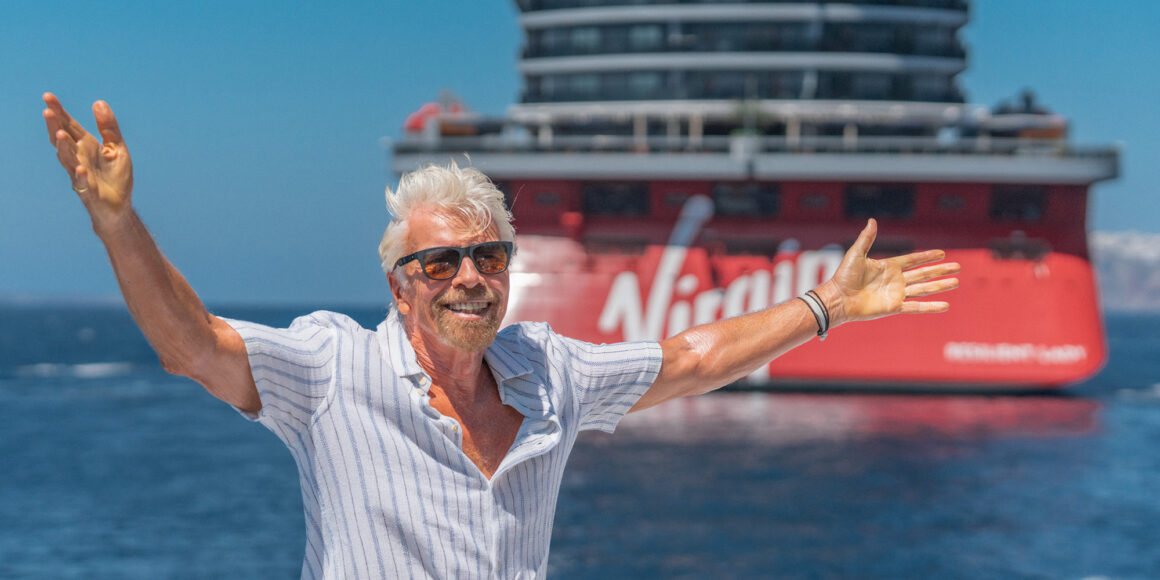
So where does Wealthness fit into all of this? As I’ve often emphasized, Wealthness is about finding a balance between financial success, personal well-being, and positive impact. It’s about creating wealth in a way that doesn’t compromise our values or harm the world around us.
From a Wealthness standpoint, Branson’s approach falls short. While he’s undoubtedly achieved financial success, his businesses have often come at a significant environmental cost. His environmental efforts, while better than nothing, feel more like an afterthought – a way to assuage guilt or improve public image rather than a fundamental part of his business model.
Goodall, on the other hand, embodies many of the principles we strive for in Wealthness. Her work has created immense value – not in terms of personal wealth, but in terms of knowledge, conservation, and inspiration. She’s achieved a form of success that goes beyond financial metrics, making a lasting positive impact on the world.
Redefining Success: The Wealthness Way
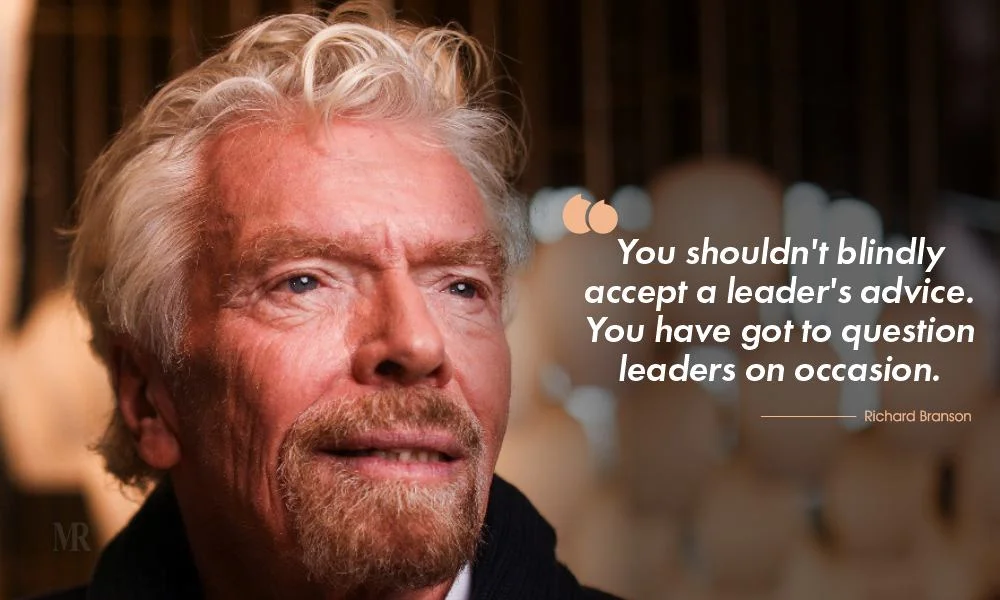
So how can we, as individuals seeking to apply Wealthness principles in our lives, learn from this contrast? Here are a few key takeaways:
- Prioritize genuine impact over image: Instead of seeking photo ops with influential figures, focus on making real, measurable changes in your sphere of influence.
- Align your work with your values: Rather than building harmful industries and then trying to offset the damage, strive to create businesses or pursue careers that are inherently beneficial (or at least not harmful) to the environment and society.
- Embrace humility: Goodall’s humility in the face of her immense influence is inspiring. Remember that true impact often speaks for itself and doesn’t need to be constantly broadcasted.
- Think long-term: Goodall’s 60-year commitment to her cause is a powerful reminder that real change takes time. Don’t be swayed by quick wins or short-term gains at the expense of long-term impact.
- Seek balance: Wealthness is about finding harmony between financial success, personal well-being, and positive impact. Strive for success that doesn’t come at the cost of your values or the planet’s health.
The Power of Individual Action
As I reflect on the contrast between Goodall and Branson, I’m reminded of the immense power we hold as individuals. Goodall’s story shows us that one person, driven by passion and commitment, can spark a global movement and change the course of scientific understanding.
It’s easy to feel overwhelmed by the scale of the challenges we face – climate change, biodiversity loss, social inequality. We might think that only billionaires like Branson have the resources to make a difference. But Goodall’s legacy proves otherwise.
Each of us, in our own way, can contribute to the “eco-system” rather than the “ego-system”. It might be through our career choices, our daily habits, or the way we invest our money. Every action, no matter how small, ripples out and contributes to the larger whole.
Reimagining Entrepreneurship
For those of us in the business world, the Goodall-Branson contrast offers valuable lessons. It challenges us to reimagine what entrepreneurship can look like in an age of urgent environmental and social challenges.
What if, instead of building businesses that harm the environment and then trying to offset that harm, we created companies that were regenerative from the start? What if our measure of success wasn’t just profit, but also the positive impact we create?
This isn’t just idealistic thinking. More and more companies are proving that it’s possible to be financially successful while also being environmentally and socially responsible. From Patagonia’s commitment to sustainable practices to Ecosia’s tree-planting search engine, there are inspiring examples of businesses that prioritize impact alongside profit.
The Role of Mindfulness in Impact
One of the core principles of Wealthness is mindfulness – being fully present and aware in our daily lives and decision-making. When we apply this principle to our impact on the world, powerful shifts can happen.
Mindfulness allows us to see the bigger picture. It helps us understand the interconnectedness of all things – how our actions ripple out to affect others and the environment. This awareness can guide us towards more conscious, impactful choices.
For Goodall, her deep connection with nature – cultivated through years of patient observation – led to a profound understanding of our place in the ecosystem. This mindfulness informed her entire approach to conservation and activism.
In contrast, the “ego-system” approach often lacks this mindfulness. It’s driven by short-term thinking, focused on immediate gains rather than long-term consequences. By cultivating mindfulness in our own lives and work, we can avoid falling into this trap.
The Courage to Stand Firm in Our Values
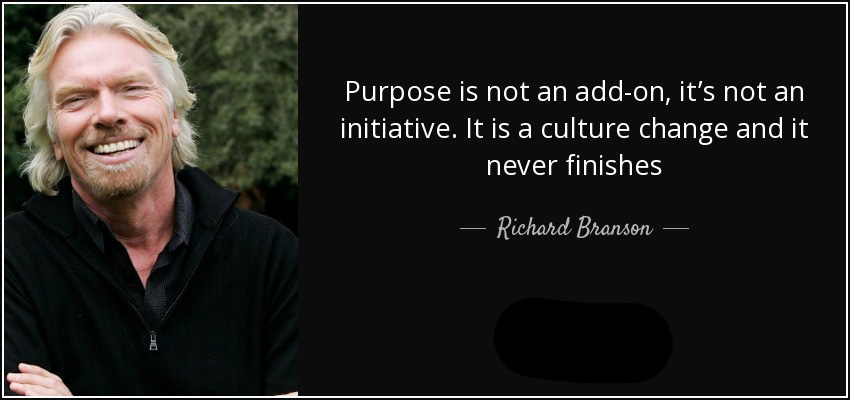
One of the most admirable aspects of Jane Goodall’s career is her unwavering commitment to her values. Despite facing skepticism, criticism, and numerous challenges, she never compromised on what she believed in.
This takes immense courage – the courage to stand firm in your convictions, even when it’s not popular or profitable to do so. It’s a quality that’s sorely needed in our world today, especially in the business realm.
Too often, we see companies and individuals cave to short-term pressures, compromising their values for quick gains. But true Wealthness requires us to take the longer, sometimes harder path – to make decisions based on our deepest values rather than fleeting opportunities for profit or recognition.
The Importance of Authenticity
Another crucial lesson we can draw from this comparison is the importance of authenticity. Jane Goodall’s impact stems largely from her genuine passion and commitment. There’s no disconnect between who she is, what she says, and what she does.
Richard Branson, on the other hand, presents a more complex picture. While he speaks about environmental issues and invests in green technologies, these efforts can feel at odds with the core of his business empire. This disconnect can undermine even well-intentioned efforts.
In our own lives and work, striving for authenticity can guide us towards more meaningful impact. It’s about ensuring that our actions align with our words, that our business practices reflect our stated values. This alignment not only feels more fulfilling on a personal level, but it also builds trust and credibility with others.
Redefining Wealth

At its core, Wealthness is about redefining what wealth means. It’s about moving beyond narrow definitions of success based solely on financial metrics or public recognition.
Jane Goodall’s life work offers a powerful alternative vision of wealth. Her richness lies not in her bank account or her fame, but in the depth of her knowledge, the breadth of her impact, and the legacy she’s creating for future generations.
This doesn’t mean we should all abandon our businesses and become conservationists. But it does challenge us to think more holistically about what it means to be truly wealthy. How can we create financial abundance while also enriching our lives, our communities, and our planet?
The Power of Education and Inspiration
Both Goodall and Branson have used their platforms to educate and inspire others, but in markedly different ways.
Goodall has focused on grassroots education, particularly through her Roots & Shoots program, which empowers young people to become environmental and social changemakers. Her approach is about creating a ripple effect of positive change, starting at the community level.
Branson, with his high profile and vast resources, has the potential to reach and influence millions. While he has used this platform to raise awareness about environmental issues, one can’t help but wonder about the missed opportunities. What if that same energy and resources were directed towards more substantive, systemic changes?
This contrast reminds us of the responsibility that comes with influence. As we grow in our own spheres of influence – whether in business, in our communities, or online – how can we use that platform most effectively? How can we inspire and educate in ways that create lasting, meaningful change?
The Role of Collaboration
One area where both Goodall and Branson have found success is in collaboration. Goodall’s work has always emphasized the importance of working with local communities to achieve conservation goals. She understands that lasting change can only happen when people are invested and involved.
Branson, too, has shown the power of collaboration through his work with organizations like The Elders and the Carbon War Room. These initiatives bring together influential figures to tackle global challenges.
From a Wealthness perspective, this emphasis on collaboration is crucial. We’re not meant to go it alone. By working together – pooling our resources, skills, and perspectives – we can achieve far more than we ever could individually.
Embracing Continuous Learning and Adaptation
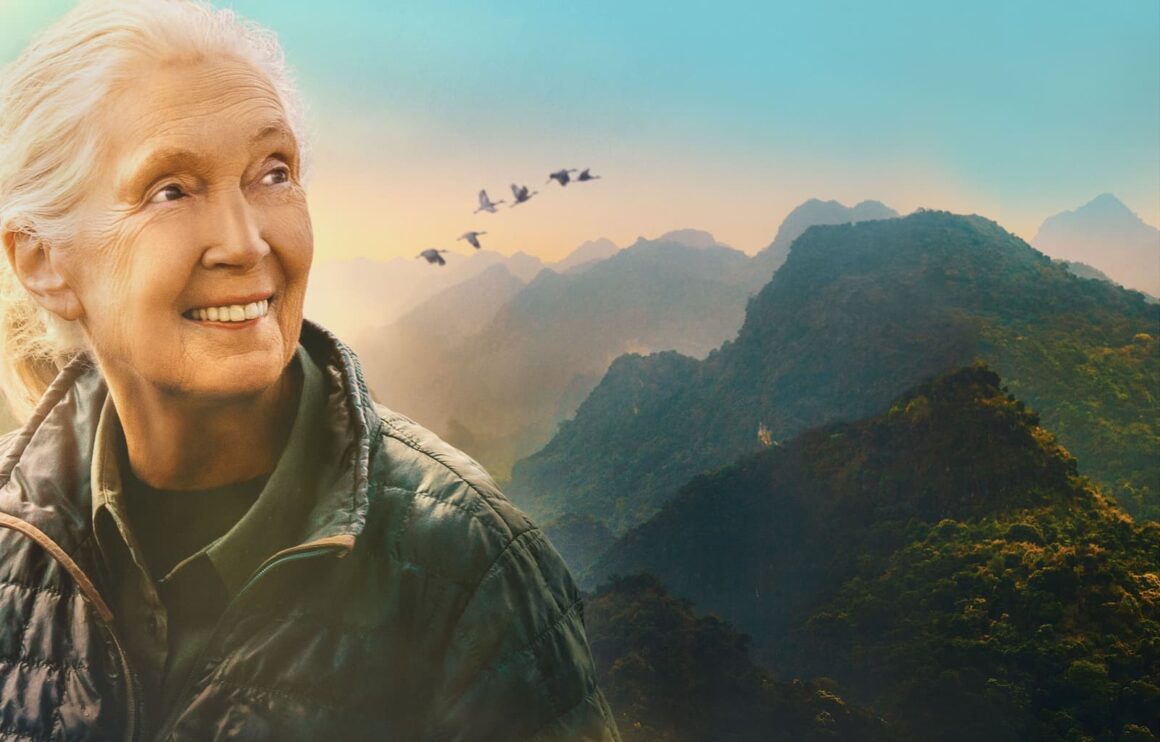
Another valuable lesson we can draw from both Goodall and Branson is the importance of continuous learning and adaptation. Goodall’s scientific work has always been characterized by openness to new information, even when it challenged existing beliefs. She’s continued to evolve her approach to conservation based on new understanding and changing circumstances.
Branson, for his part, has shown an ability to adapt to new markets and technologies throughout his career. While we might critique some of his choices, his willingness to venture into new areas and take risks is noteworthy.
In the context of Wealthness, this adaptability is key. The world is constantly changing, and our approach to creating wealth and impact needs to evolve with it. This means staying curious, being willing to challenge our own assumptions, and continuously seeking new knowledge and perspectives.
The Importance of Self-Care
One aspect of Wealthness that we haven’t touched on yet is the importance of self-care. While we don’t know much about Goodall’s or Branson’s personal self-care routines, this is a crucial element in sustaining long-term impact.
Goodall’s ability to maintain her passion and commitment over six decades is remarkable. It suggests a deep well of inner resources and likely some form of self-care practice, even if it’s not publicly discussed.
For those of us pursuing Wealthness, remembering to care for ourselves is vital. It’s not selfish – it’s what allows us to show up fully in our work and maintain our efforts over the long haul. This might involve practices like meditation, exercise, time in nature, or whatever helps us recharge and stay grounded.
Looking to the Future
As we wrap up this reflection, let’s turn our gaze to the future. What can we learn from the Goodall-Branson contrast that can guide us moving forward?
First, we need to recognize the urgency of the challenges we face. Climate change, biodiversity loss, social inequality – these aren’t abstract future problems. They’re happening now, and they require immediate, decisive action.
Second, we need to be willing to reimagine success and impact. The old models of business-as-usual followed by philanthropic giving are no longer sufficient. We need integrated approaches that consider environmental and social impact from the start.
Third, we must embrace our power as individuals. Goodall’s story reminds us that one person, driven by passion and commitment, can create enormous change. We each have that potential within us.
Finally, we need to stay true to our values, even when it’s difficult. The path of Wealthness isn’t always the easiest or most profitable in the short term. But by staying aligned with our deepest values, we can create success that is truly fulfilling and sustainable.
Choosing Our Path
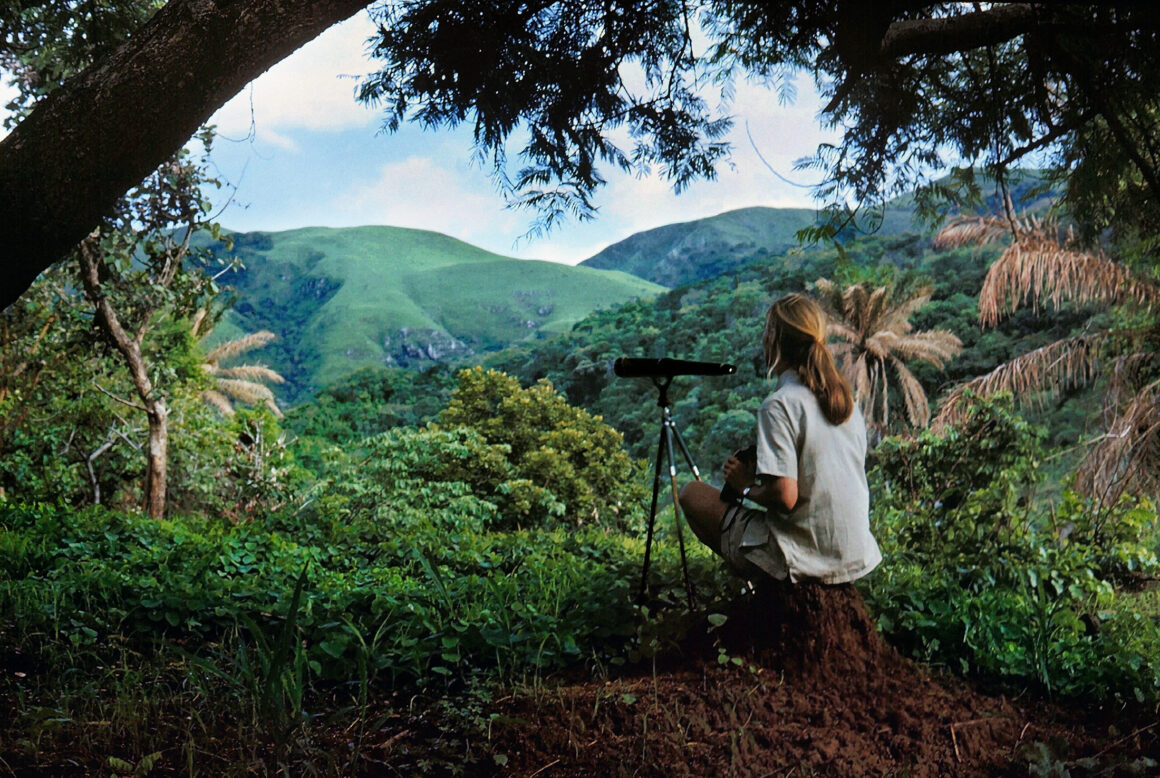
As we navigate our own journeys of wealth creation and impact, we’re constantly faced with choices. Do we prioritize short-term gains or long-term sustainability? Do we seek recognition or quiet impact? Do we follow the well-trodden path of traditional success, or do we dare to forge new ways of creating value?
The contrast between Jane Goodall and Richard Branson offers us a powerful lens through which to consider these choices. It challenges us to think deeply about what true success and impact look like in today’s world.
Wealthness is not about rejecting financial success or demonizing business. It’s about finding a better way – a way that allows us to thrive personally while also contributing positively to the world
